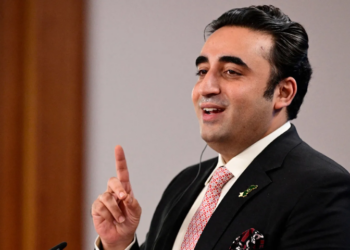Islamabad, January 22, 2025: The Pakistani government is set to tighten the Prevention of Electronic Crimes Act (PECA) with proposed amendments aimed at curbing fake news and unlawful online content.
The draft legislation, titled the Electronic Crimes Prevention (Amendment) Act 2025, introduces stringent penalties, including up to three years of imprisonment and fines of Rs. 2 million for spreading disinformation, according to Express News.
Key features of the proposed amendments
- Expanded definitions
The amendments broaden the definition of “social media platforms” to encompass websites, applications, and digital communication tools. This includes any individual or entity operating such platforms within Pakistan. - Establishment of the Digital Rights Protection Authority (DRPA)
The DRPA will be formed as an independent regulatory body, comprising a chairperson and six members, including secretaries from the IT Ministry, Information Ministry, and the Pakistan Telecommunication Authority (PTA).- The authority will have the jurisdiction to investigate complaints, direct content removal, and recommend measures to promote digital ethics.
- Content regulation
The authority will regulate 16 categories of unlawful content, including:- Blasphemy, hate speech, incitement to violence, obscenity, defamation, and material that threatens the defence or security of Pakistan.
- Compliance requirements for social media platforms
Social media platforms may be required to:- Register with the government.
- Establish local offices in Pakistan.
- Appoint representatives within the country.
- Remove flagged content within a specified timeframe to avoid penalties.
The government asserts that these amendments are critical for combating the rising tide of fake news and hate speech, which have fueled public unrest and societal divisions. Officials emphasize that the proposed changes aim to ensure accountability and promote responsible digital practices.
While proponents argue that the legislation will effectively address disinformation and protect digital ethics, critics express concerns over potential misuse and censorship. Human rights advocates warn that the broad definitions and regulatory powers could suppress free speech and stifle dissent. The government has assured that the amendments will be implemented transparently, with safeguards to protect citizens’ rights and freedom of expression. The draft legislation is expected to be presented in Parliament soon, signaling a significant move in Pakistan’s efforts to regulate its digital landscape.








